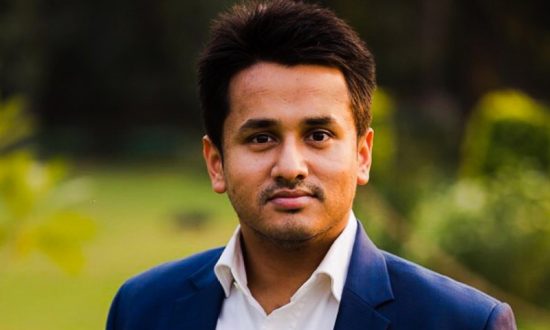Prateek makes everything tick at MINDLER. Double MBA from ISB Hyderabad & MDI Gurgaon, his brilliant track record includes strategy consulting, corporate strategy and education advisory with organizations like Accenture Strategy & Maruti Suzuki. Having cracked the CAT, GMAT, CLAT and many more competitive exams, he is an amazing mentor to get the secret recipe to reach your dream college. He dreams to replicate the mentoring experience he received throughout his academic & professional journey for millions of students across the country. In an exclusive interaction with the Higher Education Digest, Prateek talks about the Indian career counselling sector and gives a few tips to the job aspirants.
What is the current scenario in the career counselling space in India?
At present there is a huge gap in the way career decisions are made in India; there is a lot of confusion and lack of awareness. Even if there are counsellors, they are limited, so it is impossible to reach millions of students we believe that the answer is technology, which can improve the status of career counseling in India. For instance, here at Mindler, we cater to students from class 8 to 12 and provide each student with an individual assessment and one-on-one counseling. The experts on the platform track the student’s journey through monthly and quarterly interventions to undertake necessary course corrections. And all this is done seamlessly through our proprietary Internet platform.
What is the most challenging aspect of being a career counsellor in India?
A key challenge is that India is currently a counselling-deficit education sector with very few professional and certified counsellors for the huge student population. This puts a lot of pressure on the few qualified career counsellors. Secondly, students are influenced by family and peers and often make choices under their influence, thus for a career counsellor to make them understand what works for them individually is sometimes difficult. Getting parents aligned with those choices can also be challenging many a time. Other than that, more than a challenge, career counselling is a huge responsibility as it has the potential to impact a student’s earning potential and happiness quotient.
What are the key skills required to be a career counsellor? How can someone become career counsellor?
In the first instance every career counselor is a job evangelist and his or her role is to direct students to their best destinies. It is a role of an educator, a friend, a mentor and an umpire. The important key skills required to be a career counsellor includes a full knowledge of career options, current opportunities in the job markets, academic and pedagogic systems and a general understanding of human and child psychology.
To become a career counselor, you need a Bachelor’s in any field and then for your Masters, you need to get a degree in Counselling with an emphasis in Career Counseling. If a student already has a master’s degree, he or she may be able to enroll in a graduate certificate program in career counseling. And then all you need is some practical experience and field knowledge.
How can career counsellors become the bridge between job and job seekers?
If you see it in the correct, long-term perspective, career counsellors are the de facto bridge between job and job seekers already. They monitor and mentor students to pick a career that fits their personality, their interests, aptitude and expectations of work life. They promote best-fit options for higher post-job satisfaction levels among the work force leading to fewer mid-way quitting and a better more fulfilled work force.
What are the career opportunities available for students who completed UG? What would you suggest after UG, a job or higher studies?
After completion of UG, there are plenty of options that a student has, depending upon the interest and choice of the student.
Choosing between higher studies and job after your UG is purely a personal choice with lots of factors playing a role. If a student wants to maintain the flow of studying and has a strong financial background then they should go for higher studies. Masters degree in any field will be beneficial for their future career, and job advancements etc. Getting a masters degree immediately or very soon after graduation will be easier than leaving the job and again pursuing higher education. Once you are in a job, you tend to lose the motivation to study and it really becomes difficult, especially if you have to appear for an entrance exam for higher education.
On the other hand, working a few jobs will give students hands-on experience in the field of their interest. This will give him or her a chance to edit their expectations and hone their interests. It’ll also give them a chance to see whether they even like the career trajectory they have chosen so far. Most grad programs (particularly masters programs) see work experience as more a positive, particularly if it’s related to the degree program. So, there is a lot going for it too.
How to choose the right course and right college? What is your advice to the students?
Be it for Bachelor’s or Masters, the main question is always that which course to opt for and from which college. Selecting a course and college has always been a difficult task to perform as you have to pick the best one from the choices available and it is important to get it right, as it can impact a student’s future success. At Mindler, we use a machine learning platform to help students choose the career path best suited to them. We evaluate each student at different levels which includes assessments for personality, emotional intelligence, orientation style, aptitude, passion and creativity among others and this results in a 40-page report that includes top five career choices. The five can be further reduced to two or one depending upon the one-on-one counseling sessions.




